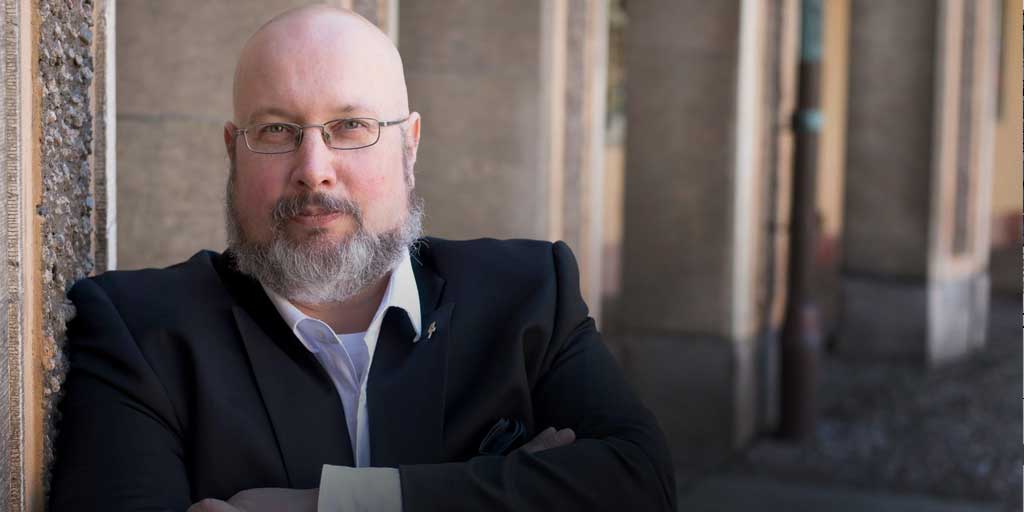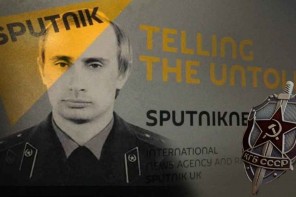An extraordinary article was recently published in the Swedish newspaper Svenska Dagbladet, “”We are behind Kragh – take the Russian threat seriously”. It was signed by nine prominent academics in the field of social sciences. One of whom, was professor Li Bennich-Björkman, the current Skytte Professor of Elocution and Political Science, which probably is the oldest professor chair in political science in the world.
The scientists wrote: Several scientists have expressed their support to this call, but declined to participate in fear of becoming targets themselves. If disinformation campaigns by authoritarian states succeed in discrediting competent and independent academics
who write critically about these states, fewer serious researchers will dare to devote themselves to such important activities in the future? Then we all suffer.
The call was made in a particular case, which has in the Swedish debate, overshadowed the more general conclusions and chilling warning from the professors.
The case is about Martin Kragh, an associate professor at Uppsala University, and head of Russia and Eurasian program at the Swedish Institute of International Affairs.
Kragh is now enduring a second large scale attack from forces who do not approve of his academic work when it comes to Russia. The first attack started in 2017, when he published a paper about Russia’s influence strategies and campaign that are conducted through public diplomacy and active measures: the Swedish case – in Journal of Strategic Studies.
When he pointed out that a certain newspaper’s cultural section was a particular carrier of Russian narratives, on the left side of the political spectrum, an intense smearing campaign ensued. Actors from both the extreme right and the extreme left took part, but included more mainstream media, which reported about complaints that were made to the review board at Uppsala University.
The reporting, however, did not mention who was complaining. Most of them were all well known actors who support Russian views in Sweden, actors that had either in public openly supported Russia, or are trying influence things in a more more clandestine way – or both.
Of course accusations of ”academic fraud” etcetera were brushed aside. But smearing the research and repeating that it is “worthless” has its own effects. The complaints are still used as an example of the ”low quality” of the research in almost every posting.
The second wave, in which the Swedish political scientists felt they needed to step in, started with another disinformation campaign.
The target here was the Integrity Initiative from the British think tank, Institute for Statecraft. Funded by government money, it has tried to launch a program to counter disinformation in different parts of Europe, by learning and sharing best practices and experiences. It was targeted in a cyber theft, believed to be GRU, and private documents from the think tank were published on the web. Immediately Russian state media started their attacked, smearing and twisting the work of the think tank and anyone mentioned in the leaked papers.
In one of the published documents was a list containing names that belonged to the “Nordic cluster”, which included the name of Martin Kragh. Obviously it was a working paper, Kragh said thanks but no thanks to participate which he publicly declared on Twitter.
But this was enough to start to tar his reputation. It was first picked up by an infamous international disinformation actor in Sweden, and soon the narrative was established…that because Statecraft had state funding, and the director is formerly a member of the British military with intelligence experiences, this of course meant it was an ”MI6”-operation. Hence associate professor Kragh must be an MI6-agent.
Of course the internet is full of conspiracy theories about everything: anti-vaxxers, 9/11, the moon landing etc…but this gained traction in Sweden when a former leader of the Green party mentioned it in a debate article written with some more well-known pro-Kremlin advocates.
But it became very public when the largest newspaper in Sweden, Aftonbladet, decided to target Kragh. They were the same cultural pages that were mentioned two years earlier in Kragh’s research, in case anyone is wondering.
In the article it was stated that Kragh was a MI6-agent, that the Swedish security police should investigate him, and that his employer should do the same. Everything in the accusation was built on a Russian disinformation campaign.
So far reactions have been good. Both scientists and publishers have been going public, stating support for Kragh and aiming the spotlight on this phenomena. But targeting like this is a psychological game that puts the aggressor in a winning spot either way.
The victim could start to self censor, or leave the field all together. The employer or his peers in the professional field could start to think that “where there is smoke there is fire” and withdraw – both socially and professional, so as to stigmatize the victim. And even if none of this happened, it sends a signal to other people about the potential reward of doing things in the field that annoys an authoritarian state without any borders to its behavior.
People might hesitate to engage, or to enter the field. This will mean fewer thoughts and skills, and that less energy will be put into problems that we have to solve. That is why the debate article from 8 academics is a chilling reminder that such harassment campaigns work in one way or another to influence our public debates.
For myself, I recognized through my own experience, that which the academics wrote about. I have met journalists in Sweden, and in other western countries, stating in private that they have decided not to engage in issues regarding malign Russian activities because of the steep risks in doing so.
Sofi Oksanen, who shares my family name but is not a relative, described very well, the mechanisms of how it is to write about Russia in an essay published in UpNorth.
”Planting a seed of suspicion is enough to tar a reputation. Not to mention the threat of a lawsuit, whatever the reason, puts its target on defensive and cripples their ability to act, which is the very purpose of harassment of this kind”.
If you combine public harassment -mainly online- together with old KGB-handbook, one realizes that we have a challenge both to protect the integrity of our public debate, and the integrity and wellbeing of people engaged in the public debate who are critical of a bigger undemocratic country. Today we talk about Russia, but same techniques and methods could be implemented by others – like China.
So, the question remains, how can we ensure that these measures are as ineffective as possible, and in the best and brightest of worlds, to make it so counterproductive so that such attacks stop, without compromising our own values along the way. This problem will increase over time unless the West manages to find the right answer.
Patrik Oksanen is an editorial writer for MittMedia Newsgroup in Sweden, he is an award winning journalist and author of the book Skarpa Skärvor (Sharp Pieces) which is about the threat of information warfare to the open society.
Edited from a piece originally published in Swedish at helahalsingland.se





